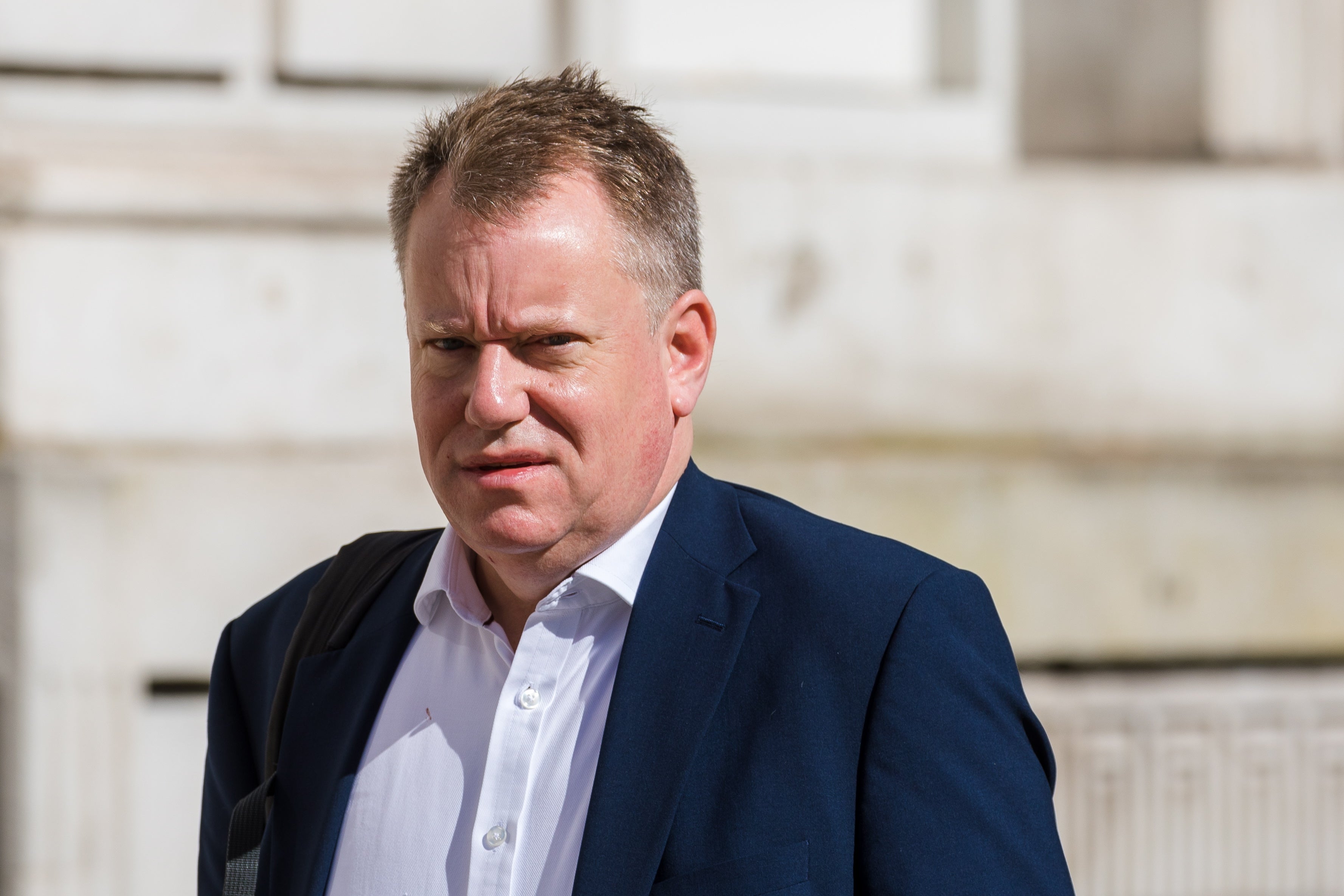EU should stop making ‘threats’ to ‘big’ countries like Britain, negotiator David Frost says
Boris Johnson’s Brexit chief says relationship with the EU will be ‘a little bumpy’ for some time

Your support helps us to tell the story
From reproductive rights to climate change to Big Tech, The Independent is on the ground when the story is developing. Whether it's investigating the financials of Elon Musk's pro-Trump PAC or producing our latest documentary, 'The A Word', which shines a light on the American women fighting for reproductive rights, we know how important it is to parse out the facts from the messaging.
At such a critical moment in US history, we need reporters on the ground. Your donation allows us to keep sending journalists to speak to both sides of the story.
The Independent is trusted by Americans across the entire political spectrum. And unlike many other quality news outlets, we choose not to lock Americans out of our reporting and analysis with paywalls. We believe quality journalism should be available to everyone, paid for by those who can afford it.
Your support makes all the difference.The European Union needs to stop making “threats” and work out a new way to deal with “big” countries like Britain, David Frost has said.
Speaking at a committee hearing in Westminster on Tuesday, the UK’s Brexit minister said the post-membership relationship with the bloc had been more difficult than expected and would be “a little bumpy” for some time.
He claimed Brussels was not showing “a huge amount of engagement” with the UK’s concerns about the Northern Ireland Brexit deal, and said the protocol was threatening the “delicate balance” of the Good Friday Agreement.
Lord Frost, who revealed that he was planning to write a book about his dealings with the EU, offered the 27-member union advice on dealing with other countries like Britain.
“I think the EU does need to try and find a way of dealing with big third countries in its neighbourhood that is a bit more responsive, and sort of fleet-of-foot, rather than a cookie-cutter approach and fitting everything into a template,” he said.
Turning to the commission’s treatment of the UK, he added: “If I had one criticism, perhaps it is that sometimes it feels like the resort to threats is a bit quick – and, you know, we don’t make threats in quite the same way as I think some players in the EU do, and I think if we could just sort of dial that down a bit it would help.”
Lord Frost has admitted that the protocol he negotiated to deal with the Northern Ireland border issue was more damaging to trade between Great Britain and the province than he had expected.
The new trade arrangements, which involve checks between the British mainland and Northern Ireland, are causing friction, and have angered both unionists and businesses, some of whom have given up shipping to Northern Ireland because of the increased bureaucracy.
The situation is expected to worsen when the grace periods, negotiated in December last year, come to an end – with one crucial one, covering chilled meats such as sausages, set to finish this month.
But Britain has taken to unilaterally extending the periods without the EU's agreement, a move that has angered Brussels, who see it as backsliding on the recently signed agreement.
The EU says that Britain should implement the agreement it negotiated, and has threatened to use agreed sanctions – including, potentially, trade tariffs – if Britain remains in breach.
But Lord Frost told MPs: “If those arrangements are going to be sustainable, [the EU] have to operate in a pragmatic and proportionate way – and that’s not what’s happening.
“The delicate balance in the Good Friday Agreement risks being unsettled. We are implementing the protocol as best we can and spending a lot of money on it, but there are still big problems, and this is creating a sense of difficulty for identity in Northern Ireland.”
Lord Frost added that the current situation was “not satisfactory and it’s hard to see how it can be sustained” because of the need for the arrangements to be approved by the Northern Ireland assembly.
Turning to the wider relationship with the EU, which has been characterised by growing incomprehension and mistrust on both sides, he added: “There’s been a big change in the relationship, and lots of things have changed very rapidly and everybody is kind of adjusting to that ... I think we’ve just got to let that play out, to some extent, and and sort of manage it as responsible international actors should.
“I think it’s reasonable to think it will be, you know, a little bumpy for some time because of that. I said last week, in a speech to another event, that I think ... those who campaigned for Leave would have been surprised to think that the relationship was as relatively difficult as it is now.
“You know, it’s not something that we want. The sooner we can move beyond the settling down process, the better. But we probably have to let it work through.”
Join our commenting forum
Join thought-provoking conversations, follow other Independent readers and see their replies
Comments